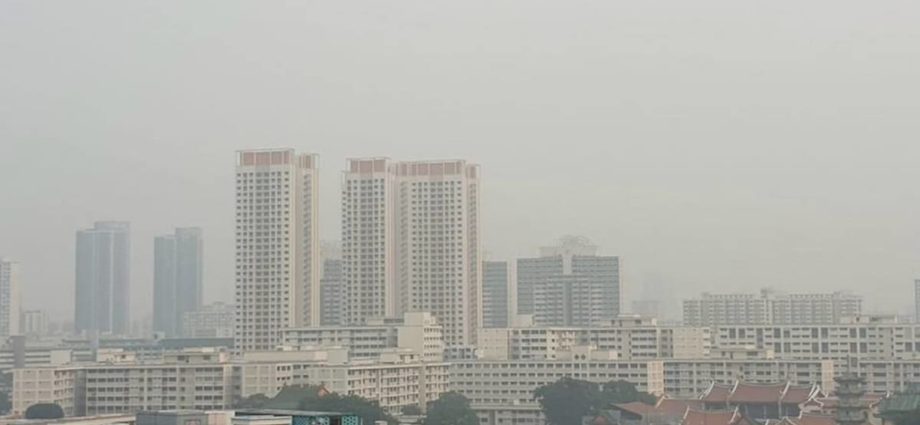
SINGAPORE: There is a high likelihood of severe haze occurring in Southeast Asia this year, a Singapore think-tank reported, although the situation is unlikely to be as severe as in 2015, when the pollutant standards index (PSI) here reached hazardous levels.
This is based on experts’ predictions that there will be a severe dry spell hitting the region due to the El Nino weather phenomenon that brings with it hotter and drier conditions.
The annual Haze Outlook 2023 report was released on Wednesday (Jun 21) by the Singapore Institute of International Affairs (SIIA), and it is the first time since the institute started publishing the yearly reports in 2019 that it has given a “red” rating for 2023.
The scale goes from “green” (low risk) to “amber” (medium risk) to “red” (high risk).
The forecast is in line with an announcement made last month by the ASEAN Specialised Meteorological Centre, which monitors and assesses land and forest fires as well as the occurrence of transboundary smoke haze affecting the region where the 10 member states of the Association of Southeast Asian Nations (ASEAN) lie.
The centre determined that there may be a higher risk of transboundary haze occurring between June and October in the southern Asean region. It said that with a high likelihood of El Nino conditions developing in the coming months, the dry season is expected to be more intense and prolonged compared to recent years, and extend into October.
For the latest report by SIIA, its high-risk assessment was based on three main factors, namely:
- The weather: Meteorological forecasts such as temperature and rainfall, where a heatwave may increase the chance of forest and peat fires burning out of control and creating haze
- Government policies: Actions taken by governments as well as the cooperation and coordination between public and private sectors
- Market conditions: Companies in the agricultural business sector respond to markets and prices, and smaller plantation operators may expand irresponsibly in response to price signals by doing land clearing that leads to deforestation
- Associate Professor Simon Tay, chairman of the institute, said of the significance of the red rating: “Although we have seen bad haze in the years before the outlook was published, the outlook has never been so pessimistic, so concerned as we are today.”
SIIA is a non-profit and independent think-tank that analyses Asean-focused policies as well as issues driving environmental sustainability, among others.

